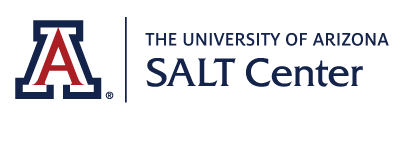Alumni: Jobs, Careers, and Life After Graduation
David Cillo
This past February, the SALT Center hosted the first annual Alumni Panel, which brought together program alumni, staff, and enrolled students in order to discuss the joys and challenges of transitioning from college to career.
This event was inspired by an observation from last year's scholarship Luncheon. At the luncheon, our keynote speakers, who happened to be SALT Center alumni, shared details about managing their learning and attention challenges in a professional setting. After the event, students lingered for over an hour, eager to ask our speakers questions about their experiences. It was clear that their perspectives were highly valued. This obvious thirst for post-college insight gave rise to the alumni panel concept.
An enthusiastic committee of SALT Center staff identified possible participants and determined an event format. Because responses to join the panel were uncertain, regional alumni were tapped for this pilot event. Strategic Learning Specialists recommended participants who resided in Tucson, or who lived within driving distance. Even though these alumni knew they would be volunteering their time and covering their own travel expenses, affirmative replies were swift, and expressions of excitement were plentiful.
The event started with a brief introduction of each panelist, followed by questions from attendees. Ten alumni, with careers in business, civil and mechanical engineering, technology, and hospitality, shared life and work experiences with approximately ninety attendees. Rose Audretsch, a Strategic Learning Specialist who recommended many of the panelists, was impressed:
“Panelists took the opportunity to provide information very seriously; they wanted to impart useful knowledge. They shared their energy, time, and personal experiences, [including struggles and accomplishments].”
Jennifer Hansen, Strategic Learning Specialist, observed that the audience was deeply engaged:
“It was clear that students who attended were absorbed in what the panelists shared.”

